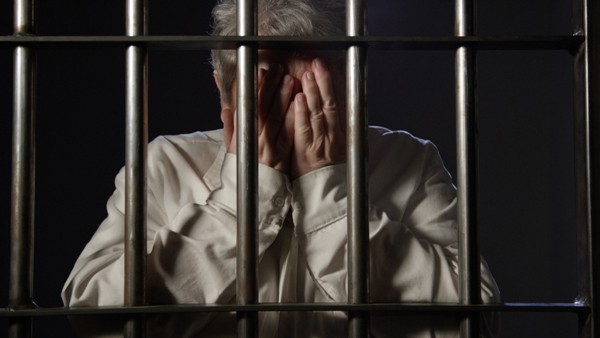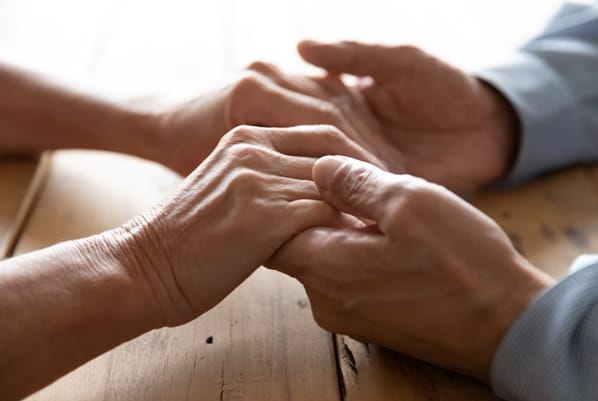Living with and loving someone with post-traumatic stress disorder (PTSD) can be challenging. You can face anxiety, avoidance and frustration which can disrupt all parts of your lives together. PTSD can make it difficult to interact with your partner at times and you may sometimes say things you do not really mean. It can be difficult to relax and unwind, and be intimate with your partner. Sometimes you may find it a hard situation to manage.
Challenges caused by PTSD
Research suggests that if your partner or some your love has PTSD it can be hard on your relationship. The following are some of the things your loved one or you may experience that makes your relationship challenging. Where any of these are familiar, consider seeking professional help to move forward together.
Experiencing Nightmares
Nightmares are common as are flashbacks and intrusive thought after experiencing trauma. All these can cause your partner to suffer from a lack of sleep and they may wake you for support after a bad dream. This can cause you both to be irritable, cranky and lethargic the next day which can damage the quality of your interactions with each other. Lack of sleep also has negative physical side effects over the long term.
Feelings of Hopelessness
Your loved one may experience feelings of hopelessness about things ever improving. This can be tough as if they feel this way over the long term, it can lead to thoughts of suicide. This is particularly a problem among war veterans dealing with PTSD when they do not get the help they need.
Walking on Eggshells
When living with someone dealing with PTSD, you may feel the need to walk on eggshells when around them. This is especially true when they have sudden outbursts of anger, pain and frustration that they direct at you. Other times you may feel ignored.
PTSD can make someone unpredictable, especially when first diagnosed. This can make for a tense living situation and you may often feel you have to be on guard. You may even develop anxiety because you do not know what to expect which may traumatise you.
Avoiding Triggers
When your partner develops PTSD, they may avoid situations and people that remind them of the traumatic event. For example, a war veteran may find it difficult during fireworks displays to celebrate events such as New Year’s Eve as it can remind them of gunfire. So if you love fireworks as part of a celebration, it can be difficult to understand how your partner feels.
Avoiding their triggers is a normal part of living with PTSD as it causes your partner to relive their trauma. But it makes maintaining relationships difficult when they do not want to do some things but find it hard to explain why.
And where your partner is unpredictable and you do not know what will trigger them, you may become concerned about upsetting them.
Dealing with Anger
Your partner may be angry and it can appear as if out of nowhere. It may be up to you to take on more responsibilities and need to care for them as they recover. And this may be a thankless task because of their behaviour. This can leave you feeling overwhelmed and unappreciated.
Sometimes you may respond angrily to their physical or verbal outbursts. And if they start abusing substances such as alcohol or drugs, it can make the whole situation more difficult. If your partner is abusive towards you, it can help to seek out a therapist that specialises in dealing with PTSD.
Negative Outlook
Since the onset of PTSD, your partner may not be the same person they were before. The trauma may change them which can make it difficult to care about them the same way as before.
You may develop a negative outlook because they are no longer the person they once were or have lost the traits that attracted you in the first place.
This is really difficult. You may struggle seeing the person you love in such pain trying to deal with what they have been through. And this can change you so you see the world in a more negative way than you did before.
Self-isolating Behaviour
When your partner develops PTSD after a traumatic event, they often lose interest in what they once enjoyed. They may want to be left alone and isolate themselves from you, their family and friends. You may find your partner is emotionally unavailable or may seem distant. This can be upsetting especially when you are trying to support them in their recovery.
Communication may become Challenging
Good communication is the basis of all relationships. And when your partner is dealing with trauma, communication from both of you may become challenging and negatively impact the bond between you..
PTSD can cause difficulties problem solving, emotional outbursts and irritability. The flow on effect can be misunderstandings. The way you respond to your partner may cause them fear or resentment. And this can impact how you deal with conflict in the relationship. There may be times when you do not want to communicate as even the most innocent conversation can overwhelm you and make you anxious at your loved one will respond.
Health Problems may Develop
It is tough seeing a person you love struggle to cope every day. Over time you may develop anxiety and chronic stress that can cause you to have health issues.
You may no longer eat properly, or you may start using alcohol or drugs to cope. Seek help before these get out of control. You need to look after your health or you will not cope with supporting your partner’s recovery.
Supporting your Loved One
When someone you love is dealing with PTSD, it can be hard on you too when you share a life together. So good support networks and relationships are a huge part of recovering from PTSD.
Sometimes you may feel burdened, angry and depressed. Supporting your loved one is not easy at times. It can take a toll on your health. While you may have patience, it can run thin at times.
Use the following tips to help support living with someone with PTSD:
- Keep your routines as normal as possible
- Where you need to create new routines, structure them so it gives your loved one a sense of security
- Become educated about PTSD.
- Encourage your partner to seek professional help.
- Avoid making all the decisions in your relationship. Instead allow your partner to make judgments and decisions they are comfortable with.
- When your partner tells you something difficult to hear, keep your reaction neutral or positive.
- Give both of you space when you feel a situation may become intense. Make sure you have a trusted support network to talk to when you need it.
- Be aware of your own stress levels and make sure you look after yourself as well.
- To help you and your partner deal with flashbacks, learn effective methods and techniques such as breathing to help you both get through them.
- When your partner loses their temper remain calm but be sure to protect yourself.
- Make yourself available when your partner needs to talk about the trauma they have been through. Even consider seeing a professional mental health specialist together.
- Be empathetic to what your partner went through and how they are feeling. Remember it is not your partner’s fault that they have to deal with trauma and developed PTSD. They never asked for it.
- Keep in mind everyone reacts differently to trauma.
- Understand your partner’s triggers.
- When your partner struggles with negative thoughts or self-image, try reaffirming your commitment and love to build their confidence using positive reinforcement. Ask them what they need to feel better.
- Seek out good tips to help your partner to express their frustration and anger in healthy ways. You may also need to seek help to find ways to handle your partner’s angry outbursts
Managing PTSD
It is possible to manage PTSD so you and your partner live a relatively normal life. While you cannot force them to seek help, you can encourage them and offer to support them by going with them. But you may also need help and so may other family members if you are not coping.
Remember that your loved one does not mean to behave the way they do after a traumatic event. But you are not to blame either. Supporting someone you love does not mean you have to accept any actions or behaviour that puts you and other family members at risk.
Blissiree Pty Ltd
Overcoming PTSD can be difficult. It can affect all parts of your partner’s life and your relationship. When you are living with a loved one trying to deal with trauma, it can be incredibly challenging to your relationship and hard on you too.
When your worrying is out of control or if your partner has become abusive and you are walking on eggshells, you may benefit from seeking professional help. If you do not prioritise treatment, it may continue to escalate. Until you do something to help change the way you are coping, your partner’s PTSD will continue to negatively impact your life.
The Blissiree Pty Ltd is pioneering a new technique. A natural treatment that may assist you cope with the symptoms and triggers of PTSD . It only requires for you to relax. Highly trained facilitators help you learn to recognise the triggers and how to manage them. This may help you take back control of your life. And you may notice an improvement after the first session. With some simple changes to your life, and with practice, you can learn to cope better with your partner’s PTSD symptoms. Before you give up in frustration and if you develop anxiety or depression, it is time to look after yourself so you can take good care of your loved one. Time to do something positive to turn how you feel and are coping around. Seek help. Take back control. You do not have to go through it alone. The sooner you get help, the sooner you can start taking good care of your mental health. And get back to enjoying life.
Reach Out
If living with someone dealing with PTSD causes them or you to struggle with everyday life, reach out to our professionals. When you are not coping, contact us. We can talk to you about how to get your lives back on track. But if you or your partner reach a crisis point, call us immediately. We are here to support you.
We can work with you over the phone, via Skype or in our Spas. Book in today for my special introductory offer for just $49 (private health rebates apply) so you learn to control what worries you. We aim to help you cope with any mental health challenges and the anxiety that affects your life. Our facilitators may alleviate the effects of PTSD so you start to take back control and enjoy life again.
Let me Help Alleviate the Effects of Post-traumatic Stress Disorder
My Emotional Empowerment Program has helped many people for more than a decade. My aim is to help you manage and cope with the stresses and challenges that come with living with someone dealing with PTSD. I can help you both so you start to see there is a way to get past what you both are experiencing. It can give you a new hope for the future together. A future filled with happiness, peace and contentment in weeks not years.
Book a free 25-minute Telehealth Consultation with Blissiree Pty Ltd founder, Terri Bowman. Or discover a seamless way that may help you manage your emotional and mental health by becoming a member. It will give you access to more than 75 audio programs that may help you to live an inspired life.
What are you waiting for? Try us now. You have nothing to lose.





